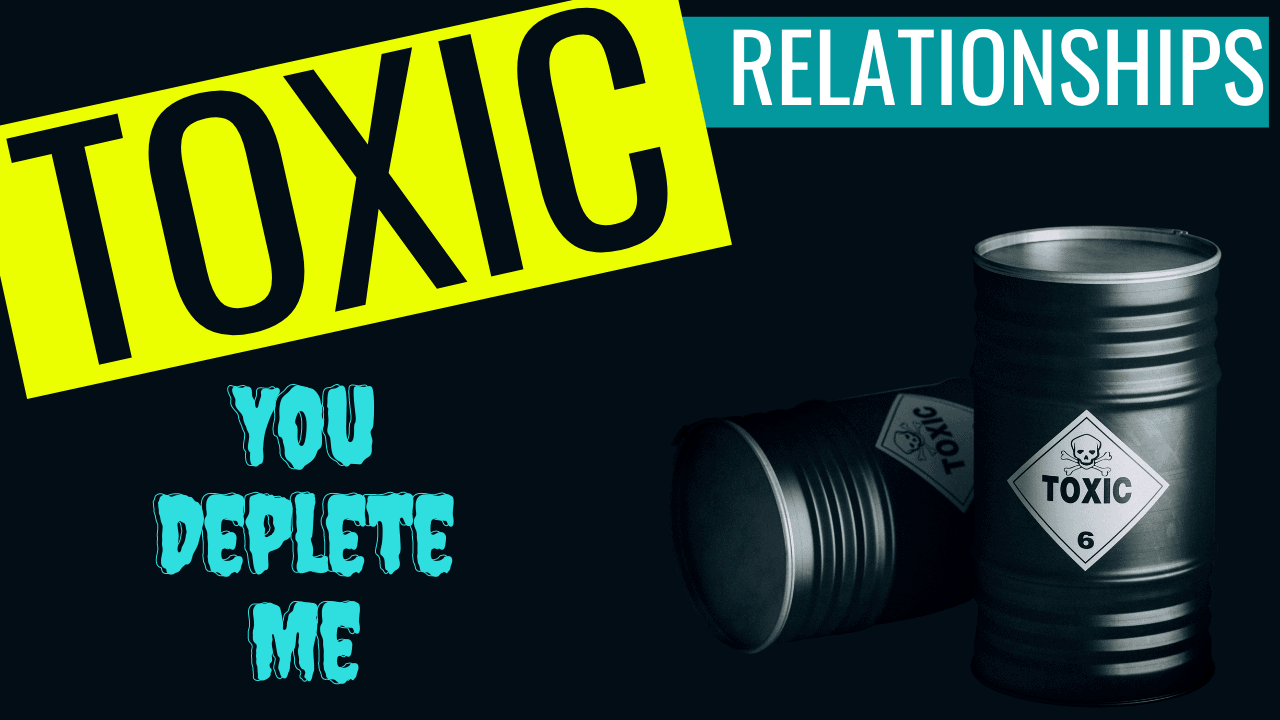In an age when technology has overwhelmed the spoken word, it is increasingly easy to set up your own solitary confinement. We have seen this in offices where high-level executives hide behind closed doors. No matter where you are in the world today, you have probably been confined to your home for various lengths of time over the past few years. A chaotic world demands a strong mind and mental toughness is your qualification for graduating the Earth School of Hard Knocks. Strength does not come from winning. Your struggles develop your strengths. You can only really win when your mind is stronger than your emotions.
The ultimate measure of your strength is not where you stand in moments of comfort and convenience, but where you stand in times of challenge and controversy. We are constantly bombarded by neural input from our environment. Our senses pick up more input each second we are awake than our brain can possibly process. At any given moment, we are receiving an enormous amount of data from at least four of our five physical senses. With this persistent onslaught of input, we manage to not go completely insane by only paying attention to a fraction of that information – and we simply discard the rest. This process is known as selective filtering and it happens automatically, that is unless we intend otherwise.
In the same way, your mind chooses what to focus on when converting the events of the day into long-term memory. Yet, there’s a secret step that happens when we convert our long-term memory into our own personal narrative. It’s the difference between “That workout was really tough. I didn’t really enjoy it.” and “Exercise just isn’t my thing.” This is your ego talking. Your ego-mind is the part of you that instinctively builds a story that makes you look good, makes excuses for you, and focuses in on the negative.
“When someone tells me ‘no,’ it doesn’t mean I can’t do it, it simply means I can’t do it with them.”
– Karen E. Quinones Miller
Ego – The Big Trouble Maker
You know when you are caught up in your ego because you take things personally and quickly become judgmental and jealous. You feel rigid, fearful, and stuck in ruminating thought patterns. Consumed by emotions, you are defensive because you are easily hurt. Your inner dialogue amplifies anxieties and self-criticisms that deteriorate your self-worth. Because of this, your ego feeds on the need for validation from others. You are easily bruised and may even emotionally meltdown when things don’t go your way, or someone offends you.
The ego loves attention and easily becomes addicted to the need to feed. At this point it will stop at nothing to create the conditions it requires to win at all costs. Manipulation of others can be expressed through claiming to be the victim or an over-exertion of control. When turned inward the ego looks like the self-critic, tyrant, saboteur, or the narcissist. The ego seeks to avoid personal responsibility through numbing distraction and always views things in the duality of “me” vs. “them.” Ego can cause a normally rational mind to justify pretty much anything. It conveniently allows us not to consider the consequences of our actions. It effortlessly seduces us into a false sense of security that the ends justify the means as long as we are okay.

“You can have anything you want if you are willing to give up the belief that you can’t have it.”
– Robert Anthony
Down the Story Spiral
Protection mechanisms are created in the mind to attach and avert away from the totality of life due to past experiences where we have felt ‘less than’. We know this is the case when there is a numbness in the body, or a resistance toward allowing uncomfortable feelings or thoughts to be expressed. Yet, subconsciously these feelings and the narrative we are telling ourselves are magnifying and magnetising more and more suffering.
Here’s the thing: all it takes to clean up your act and rewrite your personal narrative is to notice that broken lightbulb or disorganised cabinet, notice that pang of jealousy or negative repetitive self-talk and put some effort into transforming it into something functional. The ego always yearns for an end-game scenario. “How do I stop this, get rid of that, eliminate this, transcend that.” As long as this is your approach, you will simply redecorate your ego (mind) with a new outfit made out of the same conditioning. The ego seeks to contract back in fear. While the ego always looks for things to stop, the one thing it cannot do is start something new. This is an expansive choice that only the soul (heart) can accomplish. By daring to focus on new choices, one empowered option at a time, you can begin connecting with your heart while simultaneously parting ways with attachments to ego (mind) with respect, humility, compassion, and love.
“As soon as you trust yourself, you will know how to live.”
– Johann Wolfgang von Goethe
Wakey Wakey
While the time spent asleep in ego undoubtedly leaves you with varying degrees of laziness, apathy, and exhaustion, it is your willingness to make new choices that aligns you with your heart, its wisdom, and the inspiration to choose wisely instead of impulsively. Such inspiration not only benefits you, it also helps others to evolve as well. This is the power of leading by example.
It’s easy to notice mess in someone else’s house, or negative narratives that other people tell about themselves. Many of us have that coworker or family member who complains or feels sorry for themselves to an unhealthy extent. In the same way, we are most familiar with recognising ego in others who are loud and arrogant and have a “big ego,” but we are far worse at recognising when our own house is out of order, or our own ego has taken over. When left unchecked, your ego is in the driver’s seat of the stories you tell yourself, and it will drive you into right into oblivion.

“If your mindset is defeated, the results will be the same no matter how often you put up a physical fight.”
― Mac Duke
The Ravenous Beast
When we feed our egos, we stifle the part of ourselves that wants to throw open the doors and be free. The part of us that knows challenges are opportunities for growth, that our struggles help us to evolve, and that the only reason we are not getting what we want is because we are listening to our ego and the negative narratives it is building in our head about us. The ego makes a deliberate effort to fight against – it’s the very reason so much self-help advice centres around keeping a “gratitude journal,” and generally focusing on the positive. Each of us can be successful if we stop identifying with our ego, develop growth mindsets, and use the stories we tell about ourselves to catapult us into living extraordinary lives.
Making choices from your heart space will begin to detox you from the fearful grip of the ego. As with all detoxes, this can feel hellish in the beginning. Your ego will throw all kinds of reasons at you about why it can’t possibly be the right way to go. However, if you stay the course, your detoxification will usher in a state of energised renewal, and newfound strength will elevate you to new heights personally and professionally. When working your way through the depths of physical, emotional or energetic healing, the key is to focus on self-compassion and loving choices instead of going to war with the things your ego wishes to stop. Start something. Whether it’s eating healthy on a more consistent basis; exercising more frequently; staying more hydrated; setting daily intentions; creating a gratitude journal, getting out into nature; starting or finishing projects; or anything else you believe you cannot do until other distractions or perceived barriers have been laid to rest. This is how you begin to integrate your ego.
“Argue for your limitations and, sure enough, they’re yours.”
— Richard Bach
The Ego's Mind Trickery
As you detox from ego, notice how the one saying, “Not now. I can’t do this. It’s too hard” is now the ego being integrated. Of course the ego (mind) can’t do it. The soul (heart) is doing it from within you. The ego isn’t doing anything but becoming undone at the rate at which you hear thoughts like: “Just this one time won’t hurt.” Particularly in the beginning, stay focused on making wiser choices. Take breathing breaks to regulate your nervous system. This demonstrates self-love. When judgements arise, show yourself compassion as you would to a child who is growing, expanding, and evolving in such a courageous way.
Despite any fear of missing out on what the ego may promise, the size of the choice you are making or how agonising it feels, this is the work at hand. As the Conscious Leader of your own life, the question remains: How deeply do you have to love yourself and how consistently must you choose differently in order to be excited about change instead of fearing or dreading it? The ego is sure to read these words and immediately wonder, “How can I eliminate the fear and dread, so nothing is in my way?” Please know the ego’s question is nothing more than a façade to keep you focused on the things your ego believes it needs to stop. When in fact, all those things dissolve on their own the moment new choices dawn. The stories you tell yourself eventually become your reality – so why not make sure those stories embody a growth mindset?

“You can never be free until you develop the mental strength to stop fretting over things you cannot control.”
– Robert Ringer
Lost Your Edge?
Resilience isn’t something you just have. It’s something you must develop, and you can regain it when you have lost it. Dealing with the temporary frustration of not making progress is an integral part of the path towards excellence. In fact, it is essential and something that every winner has to learn to deal with. Your leadership journey cannot and will not be all success, all the time. Once you understand that achieving the extraordinary is not a linear process, you will be able to deal with frustration and failure without effort.
Focus: Know what you want.
You can do anything with focus and intention. Once you understand this, you will also understand that the single decision is one of the most powerful tools in your toolbox. If you maintain one decision, instead of becoming fatigued over every small temptation that crosses your path, you have fewer opportunities to inadvertently drift from your chosen goal. Simple.
Intention: Refuse to compromise.
Be patient with frustrations and delays. Decide what you want and remain steadfast. Nothing can sway you from your purpose if you marry a strong work ethic with indomitable will. Show up, do the work, and go home. Quality long-term results require quality long-term focus.
“The world breaks everyone, and afterward, some are strong at the broken places.”
—Ernest Hemingway
When the Going Gets Tough
Determination, persistence, consistency, and mental toughness can all be developed. When the going gets tough, the future is uncertain, and the odds long, even the most resilient people can feel their reserves of mental toughness begin to dwindle. So, how can you deal effectively with the stress, anxiety, and doubt that chip away at your motivation and willpower? Here’s a simple and effective 4 step process:
1. Write down every problem, challenge, and obstacle.
Most people try to use their psyche as their systemic process, which means issues gain importance based on their emotional weight. When you write things down, you engage differently with your problems. In this way, it’s much easier to be objective as well as creative and intuitive. Without exception, you will simply feel better when you get stuff out of your head. Try it. List your challenges. List all of your problems and concerns. List everything that worries you. Instead of feeling more overwhelmed, you actually start to feel better and lighter because you begin to see things are not as bad as you think. Solutions begin to appear once you stop passively worrying and start actively problem-solving.
2. What is the worst-case scenario?
Most of our fears, and almost all of our worries, turn out to be groundless. It’s easy to feel powerless when you’re stewing in a pot of vague, indefinite concerns. Review your list, then back away from the edge by determining the “worst” things that are most likely to happen. Create plans to deal with those possibilities. Worries are just possibilities you haven’t decided to face. When you don’t face them, you can’t control them.
3. Focus only on what you do have.
Almost every crisis involves loss: losing a job, losing customers, losing opportunities or options. This means your ego’s natural emotional response is to focus on what you no longer have. What matters more is what you still do have. The key is to reverse the natural downward mental spiral. List what you have and then use one of them to do one positive thing. Then do another and another. Keep going. Keep building on what you do have.
4. Embrace positive, realistic self-talk.
The greater the stress, the more likely you are to give up, unless you stay at least somewhat optimistic. Positive self-talk is one of the most powerful techniques you can use. However, constantly saying to yourself, “You can do it!” may not be particularly helpful. Effective self-talk is grounded in reality. Accurately assess the situation, understand the downside, and be objective about what you face. Otherwise, you won’t be able to plan effectively. You need to understand the problem to overcome it. That’s why you listed your fears, considered worst-case scenarios, developed plans, and listed what you still have going for you. Doing this adds meat to your affirmations. “I can do it,” is good. “I can do it because…” is great. While you may not be able to immediately change the situation you find yourself in, you can definitely change the way you respond to it. Once you take that kind of responsibility, the world is your oyster!

“Pride is holding your head up when everyone around you has theirs bowed.
Courage is what makes you do it.”
— Bryce Courtenay
7 Mental Toughness Training Exercises That Work
In the ordinary course of events, our lives have a routine set of demands. Good and bad times ebb and flow, and we learn to juggle the occasional bump in the road as a matter of course. In recent years, however, we’ve all seen a redefinition of life and everyday challenges on an unprecedented scale. The shifts we’re seeing have far-reaching implications on every aspect of our lives, so it’s essential to understand the importance of being mentally tough and emotionally resilient in the face of adversity. Here are seven winning exercises to boost mental toughness and train yourself to face anything life throws your way:
1. Cold Showers
The degree of your mental toughness is directly correlated with the ability to tolerate being uncomfortable, whether mentally or physically. Ending every shower on at least 60 seconds of cold is a simple – not easy – way to build your mental toughness by getting more comfortable with being uncomfortable. Cold showers also come with a string of amazing benefits: they boost endocrine function, lymph and blood circulation, and the immune system. Cold showers also boost endorphins and that beautiful neurotransmitter, serotonin.
2. Wait a Few Minutes to Eat When You’re Hungry
Build tolerance for being uncomfortable and impulse control by allowing yourself to feel hunger pangs without immediately reaching for a snack. As well as mental toughness, this also builds patience. Rather than rushing in to fix your urge, you sit with it. The ritual of giving thanks before consuming a meal combines this practice with gratitude.
3. Do the Thing You Don’t Want to Do (for 10 Minutes)
Starting something you don’t want to do trains your brain not to unconsciously respond to how you feel. Just because you don’t feel like doing it doesn’t mean you can’t do it. Do it for 10 minutes and then decide whether to continue or give yourself permission to stop. You’re stronger than you think – you can take action even when you’re not motivated, too. This applies to taking on more significant challenges, too. When your ego-mind tries to talk you out of doing something, respond with, “Challenge accepted.” Every time you do something that you thought you couldn’t do, you challenge your ego to start seeing you as more capable and competent than it gives you credit for.
4. Sit with Your Feelings
The next time you start to feel lonely, angry, anxious, sad, scared, or jealous, pause for a moment. Notice if you were about to reach for your phone to scroll through social media, eat something or grab a beer. Fight the urge and, instead, sit or lay down (face down is helpful) and close your eyes. See if you can locate a physical sensation in your body. Do you feel a tightness in your chest? In your gut? Tightness in your throat? Is your jaw clenched? Whatever sensation you find, sink into that sensation. Forget the thoughts swirling around and don’t try to figure out what emotions you’re having if they are unclear. Just go into the physical sensation and really feel it. Stay with the physical feeling for a few minutes. Then ask it what it’s trying to tell you.
5. Name Your Feelings
It’s sometimes hard to put a name to your feelings. It might even be tough to admit to yourself when you’re nervous or sad. Research shows that labeling your emotions takes the weight out of them. So check in with yourself a few times a day and ask yourself how you’re feeling: set alarms on your phone for morning, afternoon, and evening. If you can put a name to the emotion or the mix of emotions, you’ll begin to feel stronger. It’s important to connect with how you feel, or you won’t know how your feelings affect your decisions. When you’re angry or embarrassed, you may take big risks that you really don’t need to.
6. Breathe Deeply
Deep breathing reduces cortisol levels in the brain and body that block your cognition, allowing you to decompress. Deep, slow breathing calms you down, reduces your adrenaline, and ensures your stress reactions work for you and not against you. Breathe in for 6 seconds, hold for 2 seconds, and out for 7 seconds. The oxygen flow from deep breathing helps reset the deepest parts of your brain and biochemistry.
7. Admit Mistakes
Mentally tough people do not pretend their mistakes didn’t happen. Instead of just owning their error, many people attempt (unsuccessfully) to defend their position. This only digs the hole further and leads to erosion of trust and relationships. Mentally tough people accept full responsibility for their actions. By admitting their mistakes, they are free from guilt. By not admitting you’re wrong, you allow the guilt to sit and rot in your stomach.

“You just can’t beat the person who won’t give up.”
– Babe Ruth
Emotional Kung Fu
By changing the way you see something, it’s possible to turn setbacks into opportunities for success. When you find yourself in a difficult emotional situation, focus on the opportunities in it as well as the risks. An argument, for example, provides a chance to learn something about relationships and the different ways people see things. In the Chinese art of self-defense known as kung fu, the aim is to use any attacking force to your advantage. You don’t fight the attacker; you redirect their energy to accomplish your goal. You send the enemy to the ground with the energy of their own attack. This approach can be applied to emotional conflicts as well. Rather than resisting an emotional attack, you use the energy toward a solution. In emotionally charged conflicts, people do three things:
- Forcefully state their position,
- Attack your ideas, and
- Attack you.
You will usually be tempted to push back, defend yourself or reject their ideas. Instead, sidestep and deflect the force of the attack to use their strength to serve your goals. When you invite criticism and advice it can reveal a solution. Recast the attack as an attack on the problem rather than on you, and ask questions rather than getting defensive and making statements.
“You have power over your mind, not outside events. Realise this, and you will find strength.”
– Marcus Aurelius
The Phenomenon That is You
Most of your thoughts are repetitive ones, and they say more about your conditioning and programming than they do about you or your current reality. It’s the filter you are using to make sense of things in life – your “usual stories.” And you believe them, notably because your emotions and reality seem to prove them right. Your thoughts, emotions and actions influence and reinforce each other. They can form a positive or negative cycle. If you think that you suck at your job, guess what? You will. By believing so, you will focus on what is going wrong. You will experience so-called “negative” emotions that will inevitably hamper your performance, which will then reinforce your initial belief. Your distorted perception of reality creates a reality that conforms to your perception.
When you choose to think differently, you are bound to feel and act differently. However, if you let outside events (such as the media) impact your thoughts and emotions, you become like a drifting boat in a raging sea. You RE-ACT to the event, instead of choosing to consciously respond. Emotion is valid. Emotion is good. You don’t get anything done without emotion. Emotions are your change agents. Your life is the result of your decisions – whether you are consciously aware of them, or not. Even the act of not making a decision is a decision. It is in your moments of decision that your destiny is shaped. By choosing to become more consciously aware, you are empowered with the ability to choose your response to any given set of circumstances; to choose your life rather than undergo it helplessly. It’s the only way your future can be different from your past.
YOU are truly phenomenal. Live accordingly. Together we rise!
“Men’s best successes come after their disappointments.”
–Henry Ward Beecher






